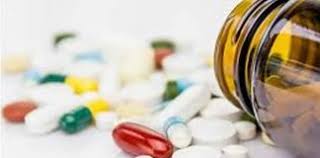The letter’s signatories argued that vitamin D is “exceptionally safe” even at high doses, with most claiming to take at least 4,000 IUs [100 mcg] a day. According to the signatories who hail from 24 countries, “global patterns and risk factors for the COVID-19 pandemic and vitamin D deficiency match precisely.”
“Finland is the only country with an effective vitamin D food fortification programme and has had one of the best pandemic responses globally, with only 484 deaths and 22,500 recoveries [at the time of speaking],” said Dr. Gareth Davies, an independent researcher and one of the main organisers of the letter.
“Japan is an interesting case. They eat so much raw fish, one of the few natural sources of vitamin D in food, that their diet is rich enough to be sufficient over winter.
“Japan had around 188,000 coronavirus cases, yet under 3,000 deaths. This is a population that is the same latitude as Italy, but twice as population dense,” the scholars added.
Vitamin D deficiency has been linked to an increased risk of viral respiratory infections in general, as well as inflammation.
It has been suggested that severe coronavirus complications may come about when the immune system overreacts to the infection, triggering a widespread inflammatory response that damages vital organs.
This may also be responsible for long COVID-19 experience, where complications linger after a former coronavirus patient tests negative for the infection.
More than 70 coronavirus studies have reportedly linked higher vitamin D levels to lower rates of infection, hospitalisation, intensive care admission and even death.
Nevertheless, UK’s National Institute for Health and Care Excellence, which collaborated with Public Health England and the Scientific Advisory Committee on Nutrition, argued that it was “not possible to determine a direct relationship between vitamin D and COVID-19 based on the available evidence.”
The body maintained, however, that people should continue to take the supplement as advised by the NHS during the UK’s winter.
Eperts say vitamin D may be expressed in IUs or micrograms, with 1mcg being equivalent to 40mcg, often written as 40μg.
The NHS recommends 10mcg (400 IUs) of vitamin D a day for most adults and children, but many experts argue this should be significantly higher, blaming the discrepancy on a “well known statistical error identified six years ago.”
Vitamin D’s established safety – even at high doses – means there is “no need to wait for clinical evidence”, argued the signatories, who urged people to take the supplement ahead of a national vaccine rollout.
“Vitamin D is much safer than steroids, such as dexamethasone, the most widely accepted treatment to have also demonstrated a large COVID-19 benefit,” they wrote.
Continuing, the researchers said, “Vitamin D’s safety is more like that of face masks.
“There is no need to wait for further clinical trials to increase use of something so safe, especially when remedying high rates of deficiency or insufficiency should already be a priority.”
The signatories are therefore calling on “governments, doctors and healthcare workers worldwide to immediately recommend and implement efforts appropriate to their adult populations to increase vitamin D, at least until the end of the pandemic”.
They recommend adults whose vitamin D levels are unknown take 4,000 IUs of the supplement every day, arguing this is “widely regarded as safe”, or at least 2,000 IUs.
People at greater risk of deficiency – like those with dark skin or who are housebound – should opt for the higher end of the recommended dose, added the signatories.
Adults who have not been taking the above doses should “get 10,000 IUs [250mcg] daily for two to three weeks, followed by the daily amount above”, the letter states.
“This practice is widely regarded as safe.
“The body can synthesise more than this from sunlight under the right conditions, e.g. a summer day at the beach.
“Also, the National Academy of Medicine in the US and European Food Safety Authority both label this a ‘no observed adverse effect level’ even as a daily maintenance intake.”
source: PunchHealthWise

 Experts from Oxford to Princeton have signed an open letter to global governments arguing vitamin D could ward off coronavirus infections, disease and even deaths.
Experts from Oxford to Princeton have signed an open letter to global governments arguing vitamin D could ward off coronavirus infections, disease and even deaths. 




